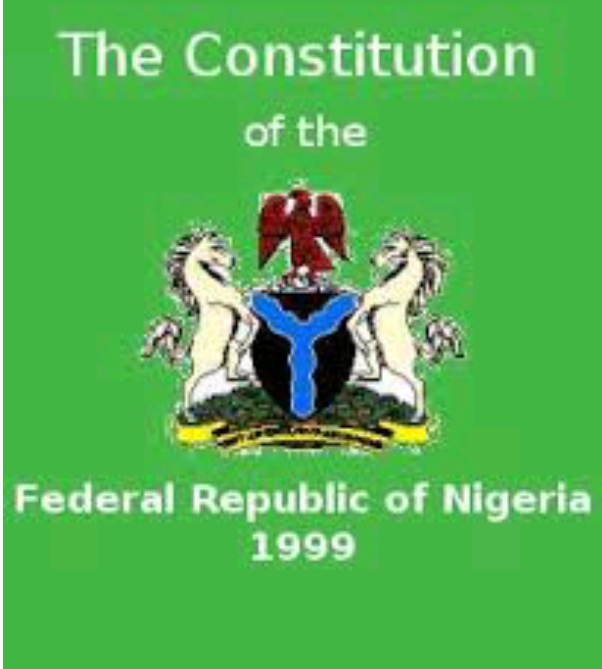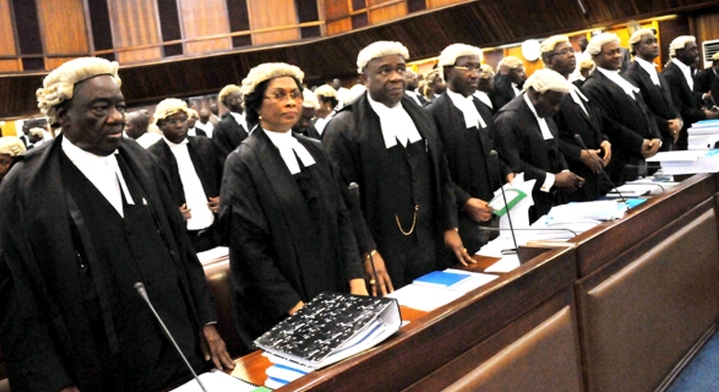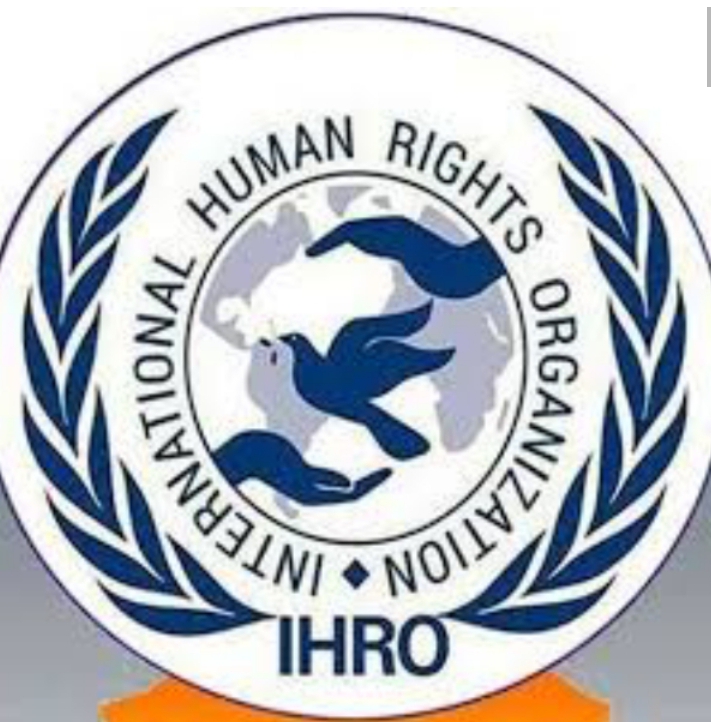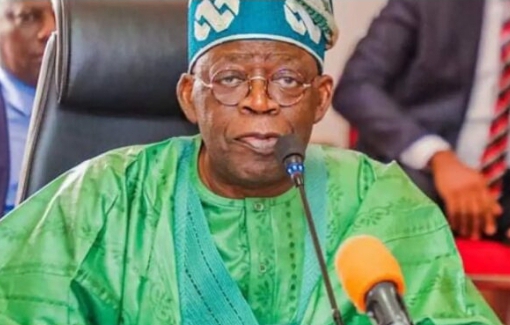In Nigeria, as in many countries, the criminal justice system plays a crucial role in maintaining law and order within the society. The fundamental aspect of this system is the penalties imposed on individuals found guilty of committing various offences which face several challenges and shortcomings. This blogpost will delve into the depths of Nigeria legal system, and propose the urgent imperative for reform in Nigeria legal system.
A sentence is the legal consequence imposed upon an offender after a criminal trial. It is the formal declaration of a court of criminal jurisdiction which takes the form of imprisonment, fines, or other punitive measures. The primary aim of such penalties is to make offenders pay for their crimes and deter others from engaging in unlawful behaviour. However, one of the most significant challenges confronting the administration of criminal justice in Nigeria is the area of sentencing framework which faces several issues.

Nigeria’s legal system relies on laws that were established some decades ago, leading to penalties that are no longer appropriate for some types of offences. For instance, fines that were once considered substantial have lost their deterrent effect in today’s economy. What was once a significant penalty now holds little weight and fails to serve as an effective deterrent. A fine of #500 Nigerian Naira for certain offences no longer carries the same financial burden in today’s economy. Thus, offenders might view such fines as inconsequential and be less deterred from committing offences. The issue of out-of-date penalties in Nigeria’s legal system highlights a significant challenge in maintaining an effective and just legal framework.
Another pressing concern is the inequity in punishments. In Nigeria, it is often observed that wealthy people can buy themselves out of prison with insignificant fines. This practice undermines the principle that justice should be blind and accessible to all regardless of their financial status. In Nigeria, there is a stark contrast in how justice is applied to wealthy individuals compared to the rest of the population. The wealthy often have the means to pay fines or hire influential lawyers who can secure lenient sentences or even avoid prison terms altogether. This situation raises concerns about unequal access to justice.
Read Also: Mixing Different Categories of Offenders Behind Bars: The Urgent Case for Prison Reform.
Where the wealthy can avoid prison through financial means, a perception that justice is only accessible to those who can afford it is created. Fines should be calculated based on a person’s income or wealth to ensure that it is proportionate and serves meaningful deterrents for all individuals. For example, a fine that might be substantial for someone with a low income could be just a minor inconvenience for someone with significant wealth. Wealth-blind justice ensures that the justice system treats individuals fairly and equally, regardless of their financial status. The goal is to avoid a situation where the wealthy can easily pay fines and essentially buy their way out of legal consequences, while those with fewer financial resources face harsher penalties.
Wealth-blind justice aims to level the playing field and can help ensure that penalties are proportional to the offence and an individual’s financial capacity. It also prevents punitive measures that could disproportionately impact low-income individuals. Implementing wealth-blind justice may also involve providing equal access to legal representation regardless of financial status to ensure that individuals can adequately defend themselves in legal proceedings, regardless of their wealth. By implementing such measures, the justice system can contribute to reducing socioeconomic inequality and fostering a fairer society.

The issue of inequity in punishment highlights a significant problem within the Nigeria justice system. Such disparities in punishment erode trust in the justice system. When people believe that the system is biased in favour of the wealthy, it undermines their confidence in the rule of law, which is essential for maintaining social stability and fairness. Inequitable punishments can also affect the deterrence factor of the justice system. If the wealthy believe they can escape severe consequences, it may encourage impunity, as others may be less deterred by the threat of punishment. Overall, the concept of “Wealth-Blind Justice” seeks to create a more equitable and just legal system by addressing the disparities that can arise due to varying levels of wealth among individuals. Addressing this issue requires comprehensive reforms within the Nigerian justice system.
Moreover, the ambiguity in some areas of Nigerian law, such as the recent electoral petition tribunal’s confusion over the status of the Federal Capital Territory due to grammatical issues in electoral law, highlights the need for comprehensive legal reform. Such ambiguity can lead to unfair interpretations of the law, causing confusion and potentially unjust outcomes. The grammatical issues in law could refer to instances where the wording of laws is unclear or open to multiple interpretations due to imprecise language.
Read Also: Transform Nigerian Local Councils into Agric Development Centres to Enhance Productivity
Nigerian law, like many legal systems, can sometimes be unclear or ambiguous in its wording. This ambiguity can arise due to various factors, including out-of-date laws, poorly drafted legislation, or linguistic issues in legal texts. The presence of ambiguity in Nigerian law highlights the urgent need for comprehensive legal reform. When the law is ambiguous, it can lead to unfair interpretations by legal authorities or conflicting judgments. This can confuse the public and the legal community, ultimately resulting in unjust outcomes in legal cases. The importance of addressing ambiguity in Nigerian law to ensure fairness, clarity, and justice in the legal system cannot be over-emphasized. This suggests that reforms are necessary to prevent confusion and unfair interpretations of the law.
In addition, the legal definitions of offences often reflect the state of society and technology at the time they were written. The problem lies in the fact that the existing legal definitions and frameworks may not adequately cover or address modern offences. However, with the rapid advancement of technology and the widespread use of the internet, new forms of criminal activities have emerged, such as cybercrimes which makes it difficult for Law enforcement agencies to prosecute cybercriminals because the laws in place do not address these specific types of crimes. A legal framework that does not address cybercrimes can hinder efforts to improve cybersecurity in the country, as the existing laws may not provide a strong deterrent effect for potential wrongdoers.

This resulted from the fact that legal definitions of offences in Nigeria might not encompass emerging crimes related to technology and the internet, like cybercrimes, which have become increasingly prevalent. The legal system may need to address these modern offences adequately. The penalties prescribed for traditional offences may not be sufficient to deter cybercriminals, as the consequences of cybercrimes can be far-reaching and devastating. To address these issues, Nigeria’s legal systems may need to adapt their laws to encompass emerging crimes related to technology and the Internet. This adaptation might involve creating new legislation specifically targeting cybercrimes, defining these offences clearly, and prescribing appropriate penalties. Additionally, training law enforcement agencies and judges on cybercrime-related issues is essential to ensure effective enforcement of these updated laws.
Aligning the legal system with international human rights standards is another critical step in addressing these reforms. This alignment ensures that punishments are just, humane, and in line with global principles of fairness and human rights. In the context of Nigeria, this might mean bringing the country’s legal practices more closely in line with internationally recognized standards to prevent inconsistencies and promote fairness in sentencing to ensure that punishments are humane, equitable and just, while also ensuring that they align with global human rights principles.
Read also: Direct Taxes Deduction from Every Bank Transaction Can Boost Tax Revenue
In Nigeria, the fabric of the society had been strained, with concerns about the effectiveness and fairness of the existing legal framework. To address these mounting concerns, the government must recognize the urgency of the situation and embark on a journey to reform Nigeria’s legal system. Foremost, we must understand that the old laws relics of a bygone era no longer resonate with the values and economic conditions of contemporary Nigeria. It is imperative to ensure that penalties are proportionate to the harm caused by different offences.
The government’s commitment to this reform must consider adjusting the fines to deter potential wrongdoers and compensate victims adequately. But fines are just one aspect. So, a team of legal experts and policymakers should be constituted to meticulously scrutinize the laws, and evaluate their relevance and impact. The team must turn their attention to imprisonment sentences, reevaluate their length and conditions, and find a more equitable and rehabilitative approach to incarceration, rather than mere punitive measures. Furthermore, the team of reformers must acknowledge that not all offenders are the same, and one-size-fits-all solutions are far from ideal.

Legal reform refers to the process of making significant changes or improvements to the existing legal framework of a country or jurisdiction. It is often undertaken to adapt to changing societal needs, address shortcomings in the law, or enhance legal clarity and effectiveness. Reform in Nigeria’s laws and punishments is imperative. This reform of Nigerian laws and punishments must promise to bring about a justice system that is in sync with the times and the collective aspirations of the Nigerian people. It is a journey that demands patience and dedication, but it is a journey worth taking, for it holds the promise of a brighter and more just future for all. To achieve this, some practical steps must be taken.
- The government must review and update penalties for various offences to ensure they are proportionate to the harm caused and the contemporary economic conditions. This may involve adjusting fines, reevaluating imprisonment sentences, and introducing alternative forms of punishment.
- Address ambiguities and outdated provisions in the law through a comprehensive legal reform process. Ambiguities in laws refer to situations where the language or wording of a law is unclear or open to multiple interpretations. Such ambiguities can lead to legal disputes and confusion. Legal reform must aim to identify and rectify these ambiguities by rewriting or clarifying the language of the law.
- Over time, laws may become outdated or irrelevant due to changes in society, technology, or other circumstances. Legal reform must seek to identify and update these outdated provisions to ensure that the law remains relevant and effective.
- Some aspects of Nigerian law still retain forms of corporal punishment, such as flogging, which can be seen as inhumane and outdated. These punishments may not align with international human rights standards and may require reform.
- By updating laws and punishments to reflect modern realities and ensuring that justice is accessible to all, Nigeria can create a more just and effective criminal justice system that serves as a deterrent and a means of upholding the rule of law.

Legal reform is a complex and comprehensive process that typically involves several key stakeholders, such as legal experts, lawmakers, civil society organizations and international organizations. Engaging key stakeholders can provide valuable insights into legal reform efforts.
- Legal Experts: Experienced lawyers, judges, and legal scholars who provide expertise on legal matters and help draft new legislation or amend existing laws.
- Lawmakers: Elected officials who play a central role in proposing, debating, and enacting new laws or amendments to existing ones.
- Civil Society Organizations: Non-governmental organizations (NGOs), advocacy groups, and community organizations that represent the interests of the public and provide input into the reform process.
- Drafting Clear and Effective Legislation: The ultimate goal of legal reform is to create clear and effective legislation that can be easily understood and implemented. This involves carefully crafting legal language to minimize ambiguity and ensure that the law achieves its intended objectives.

In summary, legal reform is a systematic process aimed at improving the legal system by addressing ambiguities and updating outdated provisions in the law. It requires collaboration among legal experts, lawmakers, and civil society organizations to draft legislation that is clear, effective, and responsive to the needs of society.
When considering legal reform efforts, such consultations can be particularly beneficial. Consulting with them allows policymakers, governments, or organizations to tap into their expertise and gain valuable insights into legal matters. Legal experts can help governments navigate complex legal terrain, reducing the risk of legal challenges or unintended consequences that might arise from poorly crafted laws or policies. Consulting legal experts can enhance public confidence in legal reforms and it demonstrates a commitment to a well-informed and evidence-based approach to changes in the legal framework.
Read Also:Prioritize Digital Skills In Nigeria’s Education Curriculum For Future-Ready Workforce
Legal scholars can contribute to public education and awareness campaigns, helping people understand the implications of legal changes and their rights and responsibilities. Collaboration with legal experts often involves working with professionals from other fields (e.g., economics, social sciences, environmental science ensuring a holistic approach to complex legal issues. In summary, consulting with legal experts, scholars, and international organizations is a valuable practice when dealing with legal reform, policy development, and complex legal matters. Their expertise and insights can help shape more effective and equitable legal systems and policies.

Conclusively, out-of-date laws can lead to inconsistencies and unfairness in sentencing because they may not reflect the current societal norms or economic conditions. To remedy this, government and legal authorities can engage in a comprehensive review and update of these laws. This might involve adjusting fines to ensure they are in line with current economic realities, and it could also entail abolishing or modifying punishments that are considered inhumane or disproportionate in today’s context.
The administration of criminal justice in Nigeria faces significant challenges, particularly in the area of sentencing, outdated punishments, inequity in penalties, and legal ambiguities which must be addressed through meaningful legal reform. Addressing the issue of outdated punishments in Nigeria’s legal system is crucial for ensuring fairness, justice, and deterrence in the face of evolving societal norms and economic conditions. The time for change has never been more pressing, and the responsibility rests heavily on the shoulders of our government and stakeholders.
Nigeria, with its immense potential, deserves a legal system that reflects our aspirations for a just and equitable society. It is within our power to reshape the future of our nation and to ensure that justice is swift, fair, and accessible to all. The call for reform is not a mere suggestion; it is a rallying cry for a brighter tomorrow, where the law truly serves as a beacon of hope. Let’s transform Nigeria’s legal system into one that stands as a testament to our commitment to justice, equality, and the betterment of our great nation.
Born in Ekiti State, Nigeria, Idowu Faleye is a certified Data Analyst, Political Activist, and Content Writer with an academic background in Public Administration. He’s the MD/CEO at EphraimHill DC – a Data Consulting Firm; and the founder of EphraimHill Data Blog – an online platform that delves into the intersection of Politics and Society. Faleye also provides Data analytics training and mentorship for aspiring data analysts and organizations. He can be reached at ephraimhill01@gmail.com.












































![The Trend of Insecurity in Nigeria. [Part 2]](https://ephraimhilldc.com/wp-content/uploads/2024/09/Computer-Monitoring-of-Remote-areas.png)


































